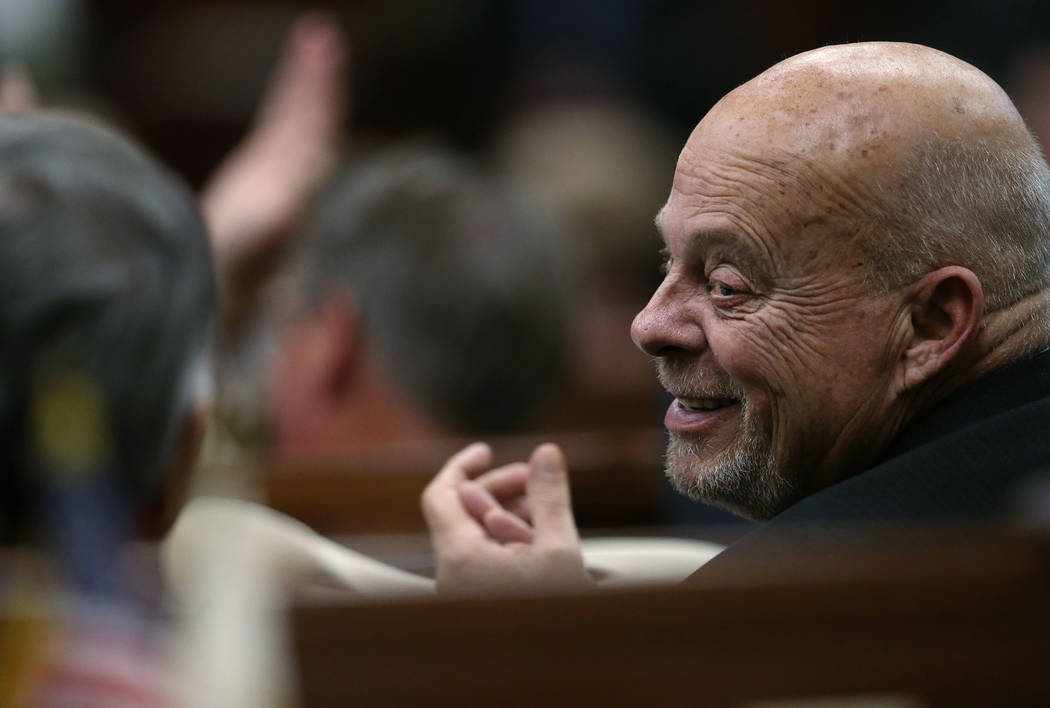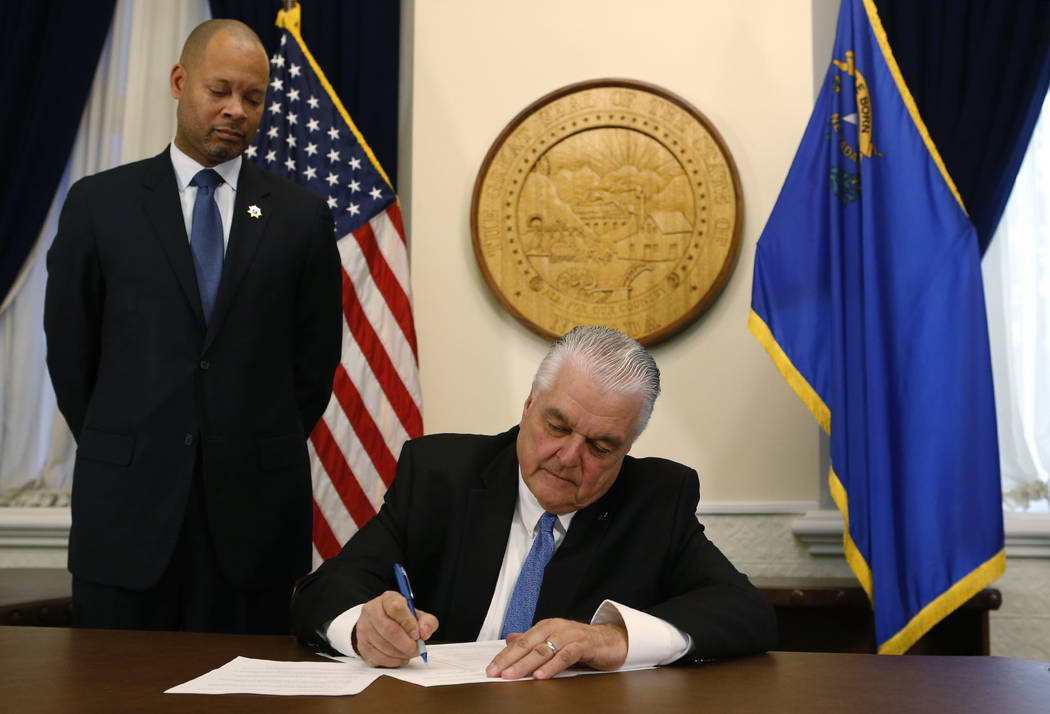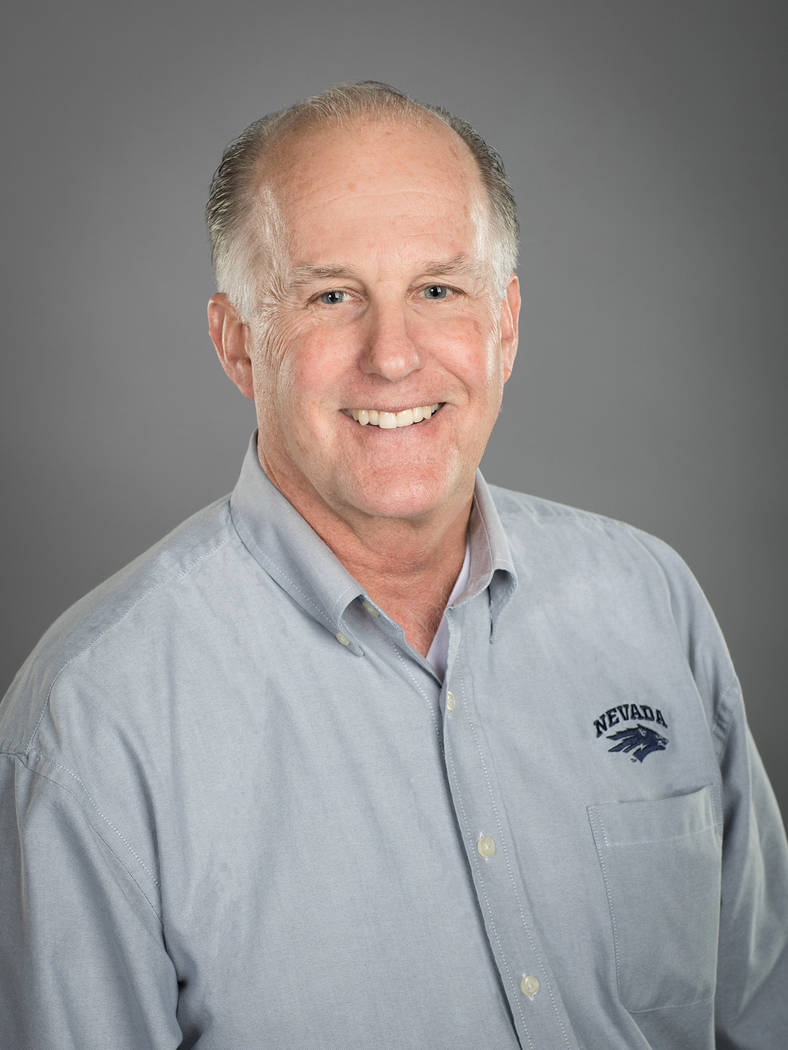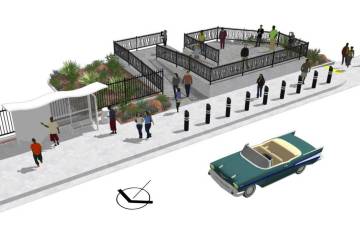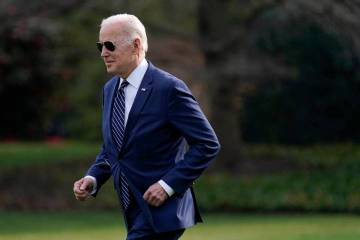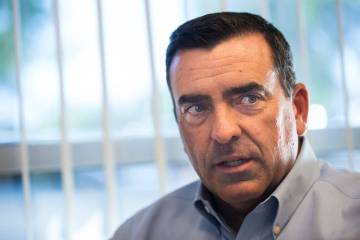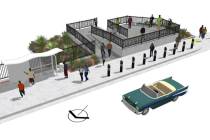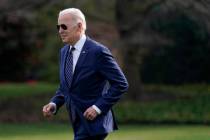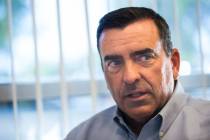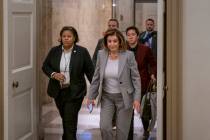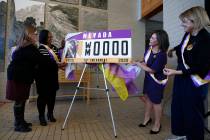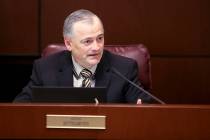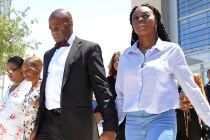In Carson City, time not on Democrats’ side
CARSON CITY — For the capital’s majority Democrats, the session might be taking on the feel of a fleeting summer vacation that goes by twice as fast as you planned. Wistfully, you get to see and do half as much as you wanted.
What’s worse, somewhere along the way, somebody stole your wallet.
With three weeks remaining as of Monday before a scheduled June 3 adjournment, capital-watchers see it increasingly inevitable that sizeable chunks of the ambitious agenda Democrats set out to pursue will fall by the wayside this term — not for lack of skill or desire, but of votes, money and time.
“I would say that the Democrats, with their majority and their policy ambitions, didn’t seem to take into account the limited time of the session,” said Eric Herzik, a political scientist at the University of Nevada, Reno.
That’s a delight to minority Republicans, for whom, when it comes to a Democrat-driven agenda, less is definitely more.
“Progress is awesome!” Assembly Minority Leader Jim Wheeler, R-Minden, said with a grin Friday when asked how the session was proceeding.
Quantitative measures – how many bills have passed, how many the governor has signed – don’t provide great insight into real productivity given how each session’s most important achievements typically come together in the final weeks. For those keeping score, Gov. Steve Sisolak had signed two dozen bills as of last week, with another 46 awaiting his attention.
At a bill signing Friday, the governor said he wasn’t concerned about the legislative pace, or the prospects for his priorities. Those include increased education funding, including raises for teachers, as well as outlays for new health care initiatives.
“It’s my first session so I don’t know — some people say it’s going normal speed, others say it’s going slowly,” he told reporters. “Lately, this week, we’ve signed quite a few bills. So I’m confident they’re going to get through it in time.”
Wheeler said he thought the pace was slower under Democrats than when Republicans last had similar control. That was in 2015.
“We had more bills going over (to the governor) by this time,” he said, joking that Sisolak might “get a writer’s cramp in the last week of the session.”
Special session whispers?
The gloomiest forecasters predict the need for a special session to complete this year’s work. But as bill deadlines have come and gone this session, more has gotten done in both houses, and in less time, than initially seemed possible.
“I’m feeling pretty confident that we are going to be able to get through these next three weeks pretty successfully,” Senate Majority Leader Nicole Cannizzaro, D-Las Vegas, said Friday.
Across the aisle, Senate Minority Leader James Settelmeyer, R-Minden, said that chamber “has been pretty good at getting things done,” but not without partisanship.
“The bills that we have been allowed to work together on have been put out in a more bipartisan fashion than ever,” he said. At the same time, “of the bills that were killed, more were killed in a partisan way than ever before.”
Slowing things down
Democrats, who hold a two-thirds majority in the Assembly and are one vote shy of that advantage in the Senate, have had to contend with unforeseen developments this session that have slowed them down. For one, they lost three veteran lawmaker/policy advocates: one to a guilty plea on misuse of campaign funds, another to sexual harassment complaints, and the third a week ago to a sudden illness and untimely death.
The Democratic bench may be deep, but changes like that inevitably put any team off its stride.
For another, by the middle of session, it had become clear there would likely not be enough money for Democrats to do everything they proposed. That became more apparent earlier this month when the state Economic Forum, projecting revenue over the next two years, forecast only a nominal increase.
Democrats got a break last week when legislative lawyers said they could keep two existing taxes without needing Republican support and a two-thirds majority to extend them. But the $140 million that represents doesn’t go very far in an $8.8 billion proposed budget, and budget-writers have been cautioning that any policy initiative with a pricetag is, at this point, on legislative life support.
An ambitious agenda
Controlling both the Legislature and the executive branch for the first time in two decades, Democrats came to Carson City with pent-up demands and wish-lists and a diverse crop of lawmakers, many of them new, spread across a progressive-to-moderate spectrum. They had proposals to change prevailing wage laws, allow state workers to collectively bargain, and increase health care and education spending for underserved populations, not to mention major policy initiatives such as criminal justice reform and, the biggest lift of all, changing to state’s decades-old school funding formula.
On those last two, a revised criminal justice reform package got yanked back last week by the sponsor amid stakeholder wrangling, and the big education bill is still only in previews.
There were miscalculations or miscues on policy: A move to abolish the death penalty didn’t have the votes, for example. Campaign finance reform was an early talking point, but there was no majority-sponsored legislation before the session, and big policy moves like that rarely get written on the fly.
An end-of-session legislative pile-up is hardly rare regardless of which party is in charge, as Herzik noted. Democrats, he said, came with oversized ambitions, and “everything seems to be just churning in the last two to three weeks.”
“I don’t think they realized how much they were trying to get done in so little time,” he said.
Contact Bill Dentzer at bdentzer@reviewjournal.com or 775-461-0661. Follow @DentzerNews on Twitter. Staff writer Colton Lochhead contributed to this report.



